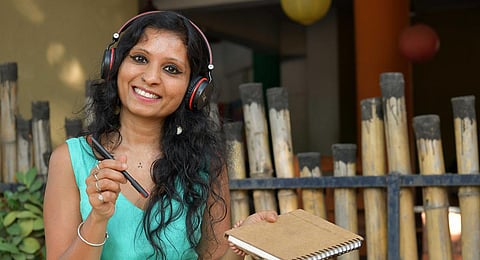

BENGALURU: In 2014, Nirmala Govindarajan met Sayontika on a visit to Kolkata, where the girl in her 20s was managing a jewellery-making workshop. A while into the conversation, Sayontika shared her story of being sold off at the age of 8, and at the mercy of pimps. Understanding the situation she was in, a 40-year-old woman at the brothel she was at, offered to protect her. However, all this changed when the pimp got wind of it and stabbed her to death in front of Sayontika, who was then a child.
This was just one of the many girls and stories that stayed with author and social sector documentarian Govindarajan, who, at that point, was writing her first book, and decided soon after to work on her second, Taboo, which was released recently. “If you looked at Sayontika, you would never imagine the ordeals she had gone through. The complexities of her life became one of the reasons for my book,” says Govindarajan, whose literary fiction was born out of her experience of documenting under-age girls who are kidnapped and trafficked. In fact, her debut novel, Hunger’s Daughters, published in 2018, was inspired on similar lines and revolves around stories of young women breadwinners living in rural areas of Odisha, Jharkhand and Karnataka.
Ask Govindarajan why she opted to pen a fictional piece which is inspired by real-life horrors, and she says, “I feel my style is more suited to fiction. I tend to combine poetry and prose. In terms of writing, it gives me complete freedom to explore various genres, while at the same time tell a compelling tale,” says Govindarajan, who wrote the 300-page book comprising 75,000 words at Koshy’s on a daily basis. “I look at my reader as the more serious ones – someone probably aged 23 and up,” says the author who also dabbles in theatre and music, playing the Western Classical on piano and violin.
At the same time, she recalls her mother’s words, who used to be a Kannada author herself, and often advised that a writer’s business is to write without bothering about royalties or anything else. However, Govindarajan admits that the challenge lay in finding a publisher interested in a piece of literary fiction. “I was lucky to find one who was interested in such writing. Literary writing doesn’t find a home easily. But otherwise, the market is filled with many attempting to write,” says Govindarajan, who believes in creating an equal world through her work and writing.